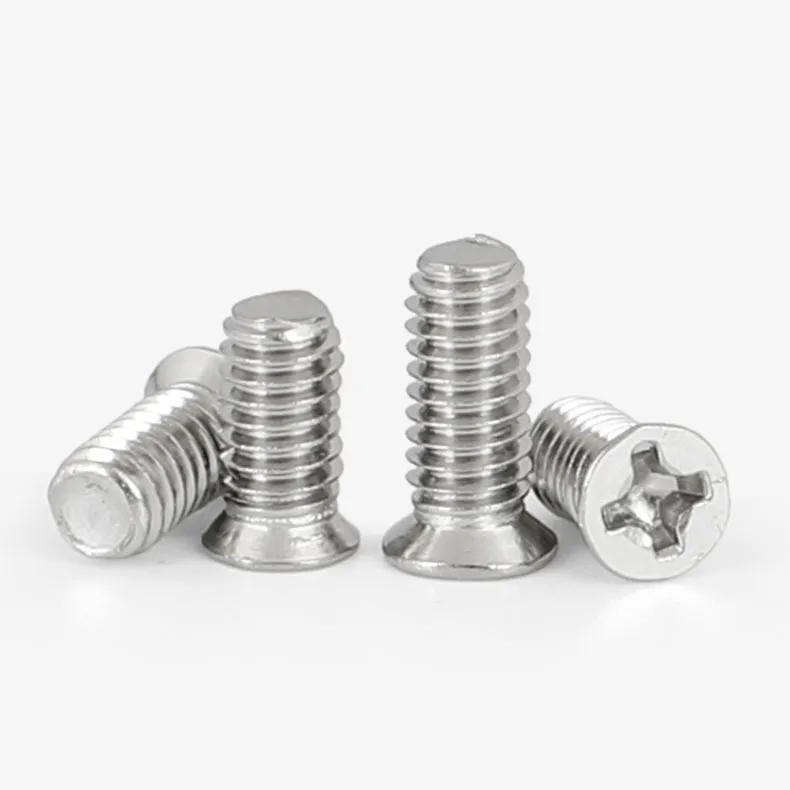

stainless steel self tapping screws
Dec . 25, 2024 23:33 Back to list
stainless steel self tapping screws
Stainless Steel Self-Tapping Screws The Ultimate Fastening Solution
When it comes to construction, manufacturing, and various DIY projects, one of the most commonly used fasteners is the screw. Among the myriad of options available, stainless steel self-tapping screws have surged in popularity due to their unique properties and versatility. This article explores the significance, features, and applications of stainless steel self-tapping screws.
What Are Stainless Steel Self-Tapping Screws?
Self-tapping screws are specially designed to create their own threads as they are driven into materials, eliminating the need for pre-drilled holes. Made from stainless steel, these screws offer exceptional durability and corrosion resistance, making them suitable for various environments, including outdoor and marine applications.
Advantages of Stainless Steel
Stainless steel is an alloy primarily composed of iron, chromium, and nickel. The inclusion of chromium enhances the material’s resistance to rust and oxidation, ensuring longevity and reliability in various settings. The key advantages of stainless steel include
1. Corrosion Resistance Stainless steel can withstand moisture and contaminants, making it ideal for environments where exposure to water or harsh chemicals is expected. 2. Strength Stainless steel is renowned for its strength-to-weight ratio, providing robust support without unnecessary bulk.
3. Aesthetic Appeal The sleek, polished finish of stainless steel also adds a level of sophistication and modernity to any project.
4. Temperature Resistance Stainless steel maintains its structural integrity even at high temperatures, making it suitable for applications exposed to heat.
Features of Self-Tapping Screws
The design of self-tapping screws allows them to drill into materials such as metal, wood, and plastic
. Here are some notable featuresstainless steel self tapping screws

1. Point Design Self-tapping screws often feature a sharp, pointed tip that allows them to penetrate materials easily. This design can vary based on the specific material being fastened.
2. Thread Design The unique threading of self-tapping screws enables them to form their own threads in the material, creating a strong grip without the need for a pre-existing hole.
3. Compatibility Stainless steel self-tapping screws can be used with various materials, making them versatile for numerous applications.
Applications of Stainless Steel Self-Tapping Screws
Due to their robust nature, stainless steel self-tapping screws are utilized in many industries
1. Construction In residential and commercial building projects, these screws are often used for fastening metal and wood components, securing structural frames, and installing cladding.
2. Automotive The automotive industry relies on stainless steel self-tapping screws for assembling body parts, brackets, and interior fittings where strength and corrosion resistance are critical.
3. Manufacturing Many manufacturers utilize self-tapping screws in their production processes, especially when assembling machinery or electronic equipment that requires long-lasting, resilient fastening.
4. Marine Applications Given their high resistance to rust and corrosion, stainless steel self-tapping screws are the perfect choice for boat building and repairs where exposure to salty water is a given.
Conclusion
In conclusion, stainless steel self-tapping screws are an indispensable fastening solution, combining strength, durability, and versatility. Their resistance to corrosion and ability to self-drill into various materials makes them ideal for a wide range of applications, from construction and manufacturing to automotive and marine uses. When considering fasteners for your next project, investing in stainless steel self-tapping screws will ensure a reliable and aesthetically pleasing finish that lasts for years to come. With the right screws in your toolkit, you can tackle virtually any task with confidence.
Latest news
-
Hot Dip Galvanized Bolts-About LongZe|High Strength, Corrosion Resistance
NewsJul.30,2025
-
High-Strength Hot Dip Galvanized Bolts - Hebei Longze | Corrosion Resistance, Customization
NewsJul.30,2025
-
Hot Dip Galvanized Bolts-Hebei Longze|Corrosion Resistance&High Strength
NewsJul.30,2025
-
High-Strength Hot-Dip Galvanized Bolts-Hebei Longze|Corrosion Resistance&High Strength
NewsJul.30,2025
-
Hot Dip Galvanized Bolts-Hebei Longze|Corrosion Resistance&High Strength
NewsJul.30,2025
-
Hot Dip Galvanized Bolts - Hebei Longze | Corrosion Resistance, High Strength
NewsJul.30,2025

